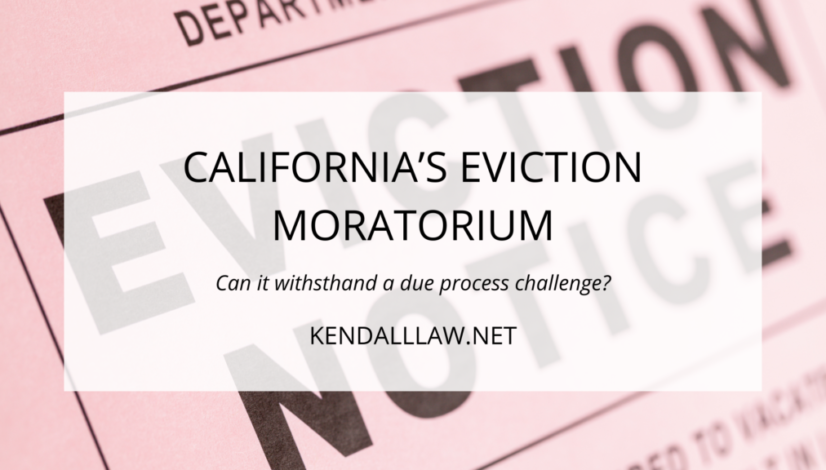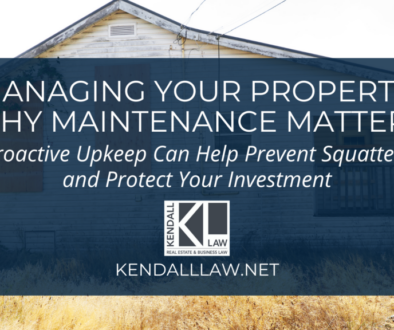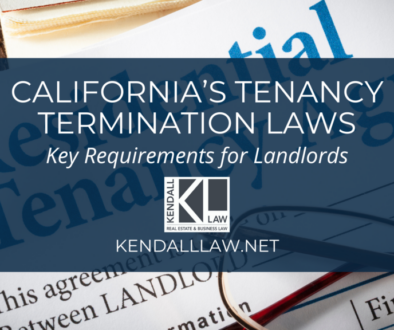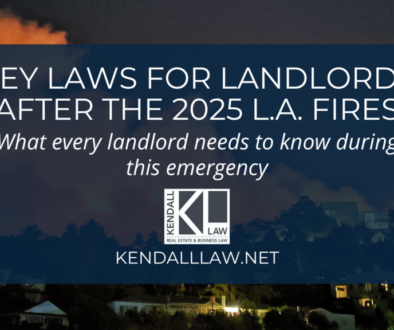Can California’s Eviction Moratorium Withstand a Due Process Challenge?
We are a year and a half into the pandemic and eviction moratorium that was supposed to only be a few months. Every time the laws are about to expire, they are extended and expanded. Once there used to be optimism that the moratorium would end the next time it was set to expire, but now we’re not sure there is any end in sight.
Good intentions and unintended consequences
While the moratorium is designed to help those who are truly facing a financial hardship, sadly it is being abused by others just to get out of paying rent. At Kendall Law, we have a handful of cases where we have seen tentants who pay rent from a trust fund or happen to make a lot of money, now not paying rent at all. In some cases these tenants actually leave their rent-free residence to go to work each day and have even come home in new cars, but still do not pay their rent.
What is a landlord to do?
Under the current rules, when a landlord issues a 15-Day Notice to a tentant to pay or quit, they can check the high earner box if they know that the tenant’s income is at least 130 percent of the median income in the county, and thus require the tenant to provide proof of the financial hardship. If the tenant is not a high earner, the landlord has to accept the tenant’s self-certification that they have suffered a financial hardship.
As it stands, we have yet to have a client who is willing to test the waters and start an eviction to challenge the alleged hardship because there is no real guidance on how it would play out in Court. These landlords are already losing money by not getting any rents owed to them and they’re afraid to spend a ton of money in Court just to lose.
Hope on the horizon
We’re hopeful that some of this will change based on the August 12th U.S. Supreme Court decision that enjoined a portion of a New York State statute which provided that tenants could establish that they had suffered COVID related economic hardship by means of self-certification. Under the New York law, like California, eviction actions based on non-payment of rent could not go forward if a tenant submitted such a self-certification. Prior to the ruling, landlords could not contest the tenant’s declaration in court. In this latest ruling, the Supreme Court held that such an inability to contest the tenant’s declaration of hardship was a due process violation because an independent court, not the litigant, should be the judge of the litigant’s claims of hardship. The Supreme Court’s order can be found here: https://www.supremecourt.gov/opinions/20pdf/21a8_3fb4.pdf.
New rulings mean a lot
New ordinances and requirements make a big impact in how to go about protecting your property, the well-being of your tenants and your real estate investment. Kendall Law serves clients throughout Southern California and can help you stay out of trouble trying to handle these matters on your own. Please reach out to us to explore your best course of action before you take action.
Kendall Law is here to help. Contact us or call (310) 619-4941.
Author: Eileen Kendall





